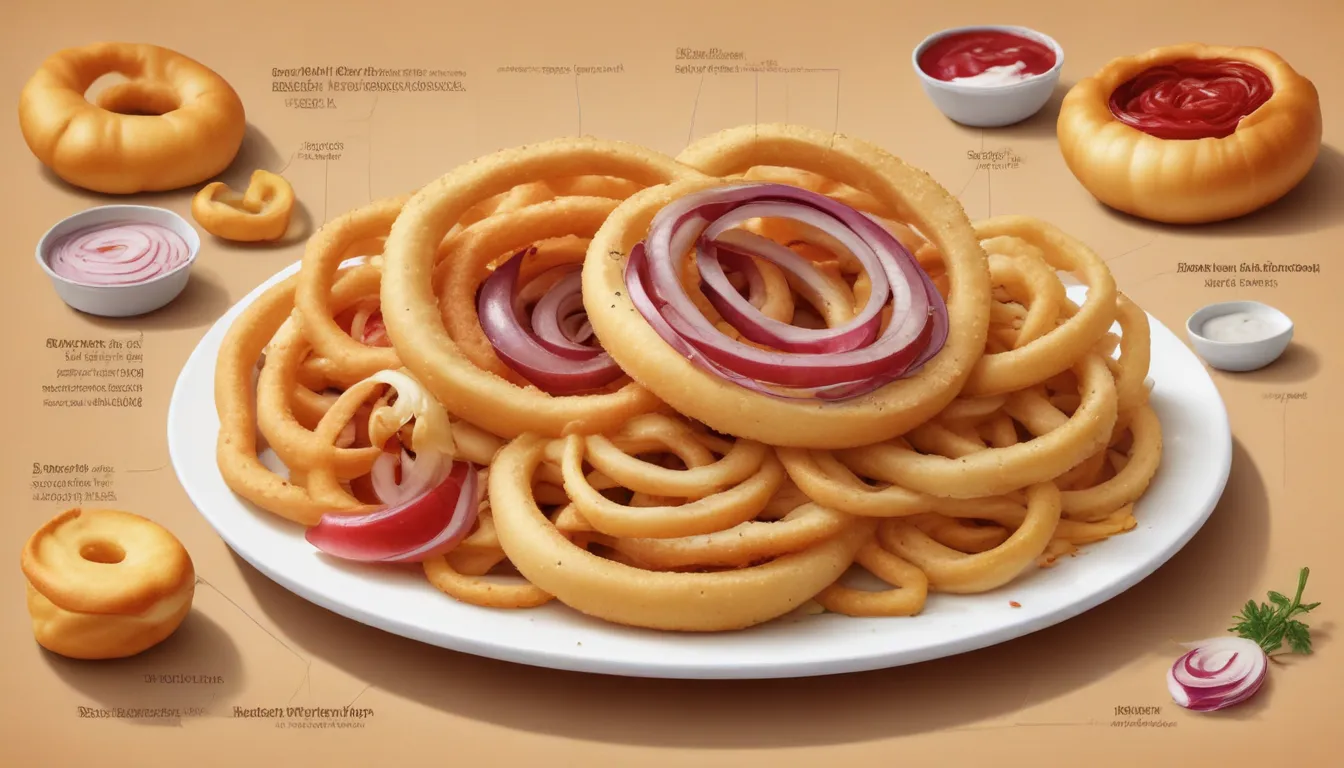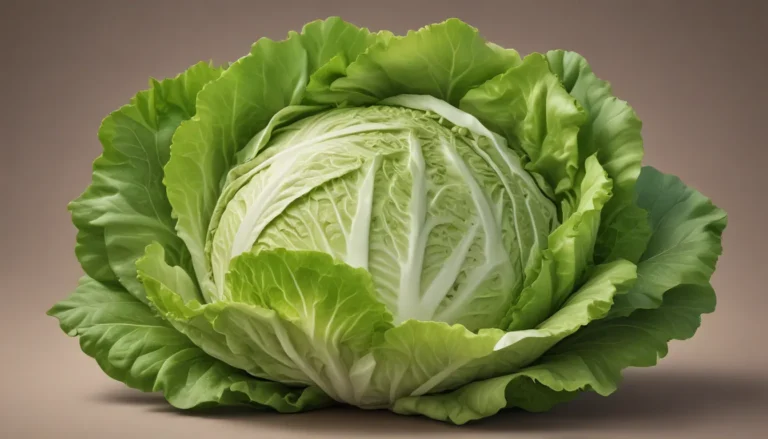The pictures in our articles might not always show exactly what the text is talking about. We use these images to make the article more interesting and eye-catching. They are there to add to the text, but not to replace it or show every detail.
Are you a fan of crispy, savory onion rings? These beloved comfort food treats are hard to resist, whether enjoyed as a side dish or a satisfying snack. But have you ever stopped to think about the nutrition facts behind these delicious delights? In this article, we will delve into 19 key nutrition facts related to onion rings to help you make informed choices about incorporating them into your diet.
Indulge Moderately and Choose Wisely
- Keep in mind that onion rings are high in calories and fat. Enjoy them in moderation, and consider healthier alternatives like baked or air-fried versions for a lighter treat.
- Pair onion rings with balanced meals to savor them as an occasional indulgence. Be mindful of portion sizes and make informed choices based on your dietary needs.
Unveiling the Nutrition Facts
Calories:
One serving of onion rings, approximately 100 grams, contains about 419 calories. Remember, the calorie content may vary based on the cooking method and the size of the rings.
Fat:
An order of onion rings typically contains around 23 grams of fat, primarily from frying. Be cautious if you're watching your fat intake.
Sodium:
Onion rings can be high in sodium, with an average serving containing about 478 milligrams. Monitor your sodium intake if needed for health reasons.
Carbohydrates:
A serving of onion rings contains approximately 47 grams of carbohydrates, mostly from the batter or breading used.
Protein:
While not a significant source of protein, one serving of onion rings provides around 5 grams. The protein content may vary depending on the brand and preparation method.
Fiber:
Onion rings usually contain about 2 grams of fiber per serving, offering a minimal amount of dietary fiber.
Vitamins and Minerals:
Onion rings contain small amounts of vitamin C, calcium, iron, and potassium. However, these levels are relatively low compared to other nutrient-rich foods.
Making Healthier Choices
Deep-Fried vs. Baked Onion Rings:
Traditional deep-fried onion rings are higher in calories and fat compared to baked or air-fried variations. Consider opting for lighter cooking methods for a healthier choice.
Gluten-Free Options:
For individuals with gluten sensitivities or celiac disease, gluten-free onion ring alternatives made with rice flour or cornmeal are available.
Allergen Information:
Be cautious if you have allergies or dietary restrictions, as onion rings typically contain common allergens like onion, flour, eggs, and oil.
Onion Rings and Weight Gain:
Regular consumption of onion rings, due to their calorie and fat content, can contribute to weight gain if not balanced with a healthy diet and exercise.
Eating Onion Rings in Moderation:
While tasty, it's best to enjoy onion rings in moderation considering their calorie and fat content.
Healthier Alternatives:
Experiment with baking or air-frying onion rings at home using lighter ingredients, or try veggie-based alternatives like zucchini or sweet potato rings.
Nutritional Variations:
The nutrition content of onion rings can vary based on the cooking method, oil type, and onion ring size and thickness.
Homemade vs. Restaurant Onion Rings:
Homemade onion rings may differ slightly in nutrition facts from restaurant or store-bought versions due to varying ingredients and cooking techniques.
Savoring Onion Rings Smartly
Onion Rings as an Occasional Treat:
Due to their high calorie and fat content, view onion rings as a treat to enjoy occasionally rather than regularly.
Pairing Onion Rings with Balanced Meals:
If you choose to indulge in onion rings, accompany them with a balanced meal comprising lean protein, vegetables, and whole grains to ensure a well-rounded nutrient intake.
Finding Balance and Enjoyment
In conclusion, onion rings can offer a tasty and satisfying treat, but it's essential to be mindful of their nutritional content. While they may pack a caloric and fatty punch, there are ways to enjoy onion rings sensibly. Opt for baked versions to lower fat content, and watch portion sizes while considering healthier accompaniments. Finding the right balance and savoring onion rings as part of a varied diet are key to enjoying them guilt-free.
FAQs
-
Are onion rings healthy?
Onion rings are not typically regarded as healthy due to their high calorie and fat content. However, healthier choices like baked options and portion control can make them a better treat. -
How many calories are in onion rings?
Caloric content in onion rings varies by serving size and preparation method, averaging around 200-300 calories for a small serving. -
Do onion rings offer any health benefits?
While not nutrient-dense, onions themselves provide health benefits, including antioxidants and essential nutrients that support heart health and immunity. -
Can I enjoy onion rings while on a diet?
If you're dieting, be mindful of portion sizes and opt for healthier preparation like baked onion rings. Enjoy them in moderation as part of a balanced diet.
Your Trusty Source of Information
At our core, we prioritize delivering credible and engaging content to enrich your knowledge. Each fact shared on our platform is contributed by real users like you, ensuring a diverse range of insights and information. Our dedicated editors meticulously review each submission to uphold the highest standards of accuracy and authenticity, guaranteeing that the facts we share are both captivating and reliable. Explore and learn with confidence, trusting in our commitment to providing quality and genuine content.






